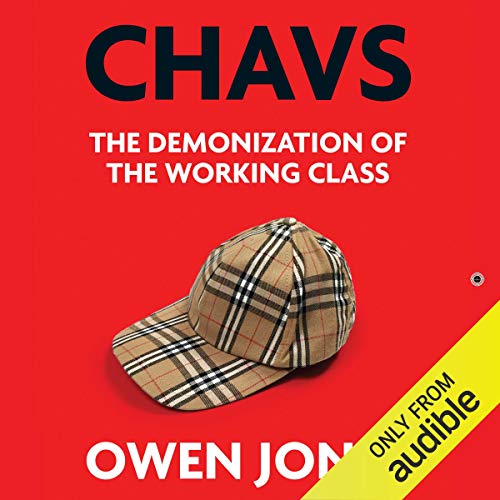Owen Jones’ “Chavs” audiobook explores the stigmatization of the British working class. It delves into societal and political factors contributing to this issue.
“Chavs: The Demonization of the Working Class” by Owen Jones offers a compelling examination of how British society marginalizes the working class. The audiobook narrates the journey from the rise of the term “chav” to its widespread use as a derogatory label.
Jones provides insightful analysis, shedding light on the socio-economic and political dynamics at play. This exploration is essential for understanding class prejudices in modern Britain. With a blend of personal anecdotes and thorough research, the audiobook invites listeners to reconsider their perceptions. It’s a must-listen for those interested in social justice and class issues.

Introduction To ‘chavs’
Owen Jones delves into the stigmatization of the working class in “Chavs. ” The audiobook explores societal prejudices and classism, making it an insightful listen.
Origins And Evolution Of The Term
The term ‘Chavs’ started as a slang word. It was used to describe a certain group in Britain. Over time, it evolved into a derogatory term. People used it to insult those from working-class backgrounds. Owen Jones explores the origins and impact of this term. He dives deep into how it affects society and perceptions.
Overview Of The Audiobook
The audiobook version of ‘Chavs’ is engaging and informative. Owen Jones narrates the story himself. His voice adds depth to the narrative. Listeners can feel the passion and urgency in his words. The audiobook provides a comprehensive look at the issues discussed in the book. It’s perfect for those who prefer listening over reading.
Key Themes And Arguments
Owen Jones’ “Chavs” audiobook delves into the stigmatization of the working class in modern Britain. It explores societal prejudices and the political landscape that perpetuates inequality.
Class Dismissal In Modern Britain
The working class faces dismissal and stereotyping. People often view them as lazy. This view leads to social exclusion. Many believe they are undeserving of help. Society often ignores their struggles. This creates a cycle of poverty. Breaking this cycle is very hard.
Media’s Role In Stereotyping
The media often paints the working class negatively. TV shows depict them as thieves or scroungers. Newspapers write about their failings. This shapes public opinion. People begin to distrust the working class. The media rarely shows their hard work. Positive stories are few and far between.
Political Implications And Responses
Politicians often ignore the working class. Policies rarely help them. Cuts to welfare make life harder. Some politicians use them as scapegoats. They blame them for economic issues. Few parties offer real solutions. True change requires bold policies. The working class needs a voice in politics.
Impact And Reception
Owen Jones’ Chavs received widespread acclaim. Many praised its sharp analysis. Critics highlighted its bold arguments. The audiobook version reached a larger audience. Listeners appreciated Jones’ engaging narration. It sparked discussions on class and inequality.
The book changed how many view the working class. It introduced new terms to public debate. Jones’ work inspired activists and writers. Politicians referenced it in speeches. Social movements adopted its themes.
Chavs remains a key text on class issues. Its themes are still relevant today. New readers discover its insights. It continues to influence social commentary. The audiobook version keeps gaining listeners.


Conclusion
Owen Jones’ “Chavs” audiobook offers deep insights into class struggles. It challenges stereotypes and promotes social awareness. This engaging listen is perfect for anyone interested in understanding modern Britain. Don’t miss out on this thought-provoking and informative audiobook. It’s a must-listen for anyone keen on social justice and equality.



